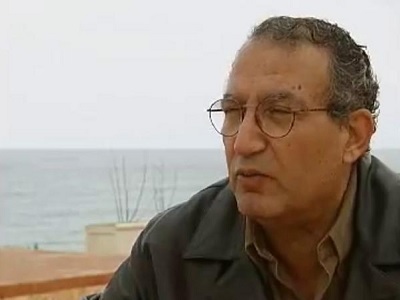
By Julie Webb-Pullman
Dr. Eyad El-Sarraj, internationally-esteemed Palestinian psychiatrist and Commissioner-General of the Palestinian Independent Commission for Citizens’ Rights, passed away in Gaza a short time ago.
His human rights work was not without personal cost – in 1996 he was arrested and tortured for condemning torture and violation of human rights by the Palestinian Authorities.
But it was also not without recognition – in 1997 he was winner of the Physicians for Human Rights Award, and in 1998 of the Martin Ennals Award for human rights defenders.
In 2010 he was awarded the Swedish labour movement’s largest and most prestigious award, the Olof Palme Prize for his self-sacrificing and indefatigable struggle for the Palestinian people.
“In his professional and political work, Eyad El-Sarraj has stood on the side of the individual human being, regardless of nationality, gender or social position. He has brought into the light the destructive influence of repression on mental health,” the Committee stated when announcing the award.
In the same year, Dr El-Sarraj was jointly awarded the Juan José López-Ibor prize in psychiatry, along with Professor Jules Angst, in recognition of his contribution to advancement of the rights and dignity of people with a mental illness, and his scientific research.
Other notable activities include being a consultant to the Palestinian delegation at the Camp David 2000 Summit, and his appearance as an expert witness before the United Nations-mandated Goldstone Commission on the war crimes committed during Israel’s 2008-9 military offensive “Operation Cast Lead.” His evidence on the long-term psycho-social impacts of the conflict on civil society in Gaza was quoted in the final report.
Born in Beersheva, Palestine on 27 April 1944, Dr El-Sarraj arrived with his family in Gaza in 1948 as a refugee.
He grew up to become the first psychiatrist to practice in Gaza, beginning in 1977. Dr El-Sarraj went on to found and direct the Gaza Community Mental Health Programme (GCMHP), which he established in 1990 to promote the mental well-being of three major target groups in the Palestinian community: children, women, and victims of organized violence and torture.
“We strongly believe that there is a correlation between human rights and mental health, because sound mental health cannot be gained under violent circumstances, and human rights will not be respected in a society exposed to ongoing trauma,” states the organisation’s strategy document.
The light that Dr Iyad El-Sarraj shone into some of the darkest corners of Palestine can not be dimmed by his death.
“You are the window through which I can breathe,” one of his patients once told him.
His legacy of hope, and a legion of Palestinians both taught and inspired by him, will continue his important work, and keep the windows open to let in the air and light that Israel, and now Egypt, are determined to prevent entering.
May Dr El-Sarraj find the peace in death that tried to bring to so many in life.
– Julie Webb-Pullman is a freelance journalist from New Zealand who has been living in and writing from Gaza since 2011. She contributes to SCOOP Independent News, Palestine Chronicle, and other online news sites. She contributed this article to PalestineChronicle.com.





